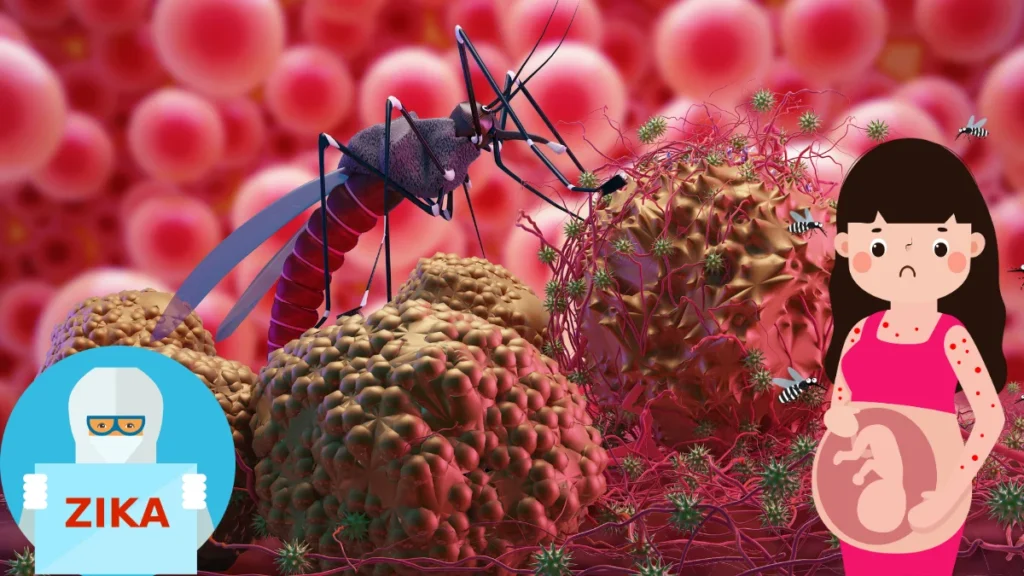
Table of Contents
ToggleUnderstanding Zika Virus Infection: Symptoms, Risks, and Prevention
Welcome to our comprehensive guide on Zika virus infection. As global health concerns continue to evolve, it's crucial to stay informed about emerging threats like Zika. This article will provide you with essential knowledge about this mosquito-borne disease, its symptoms, potential risks, and most importantly, how to protect yourself and your loved ones.
What is Zika Virus Infection?
Zika virus infection is caused by a virus transmitted primarily by Aedes mosquitoes. First identified in Uganda's Zika Forest in 1947, the virus remained relatively unknown until a large outbreak in Brazil in 2015 brought it into the global spotlight. Since then, Zika has become a significant public health concern, particularly due to its potential to cause severe birth defects.
How Zika Virus Spreads
Understanding how Zika spreads is crucial for prevention. The virus is primarily transmitted through:
- Infected Aedes mosquitoes (mainly Aedes aegypti)
- Sexual contact with an infected person
- Mother-to-child transmission during pregnancy
- Blood transfusions (rare)
It's important to note that Zika can be transmitted even if the infected person doesn't show symptoms.
Symptoms of Zika Virus Infection
Recognizing the symptoms of Zika is crucial for early detection and management. However, it's worth noting that many people infected with Zika don't develop symptoms at all. When symptoms do occur, they are typically mild and last for several days to a week. Common symptoms include:
- Fever
- Rash
- Joint pain
- Conjunctivitis (red eyes)
- Muscle pain
- Headache
These symptoms are similar to those of other mosquito-borne diseases like dengue and chikungunya, which can sometimes lead to misdiagnosis.
Diagnosis and Treatment
Diagnosing Zika virus infection can be challenging due to its similarity with other diseases. If you suspect you might have Zika, especially if you've recently traveled to an area with known Zika transmission, it's important to consult a healthcare provider. Diagnosis typically involves blood or urine tests.
Currently, there is no specific treatment for Zika virus infection. Care is focused on managing symptoms:
- Get plenty of rest
- Drink fluids to prevent dehydration
- Take acetaminophen to reduce fever and pain
- Avoid aspirin and other non-steroidal anti-inflammatory drugs until dengue can be ruled out
Risks and Complications
While Zika is mild for most people, it can pose serious risks in certain cases:
Risks During Pregnancy
The most severe risk associated with Zika is to pregnant women. Zika virus infection during pregnancy can cause a serious birth defect called microcephaly and other severe brain defects. It has also been linked to other problems such as miscarriage, stillbirth, and other birth defects.
Guillain-Barré Syndrome
In rare cases, Zika virus infection has been associated with Guillain-Barré syndrome, a condition in which the immune system attacks part of the nervous system, causing muscle weakness and sometimes paralysis.
Prevention: Your Best Defense Against Zika
Prevention is key when it comes to Zika virus infection. Here are some effective strategies to protect yourself:
1. Prevent Mosquito Bites
- Use EPA-registered insect repellents
- Wear long-sleeved shirts and long pants
- Use permethrin-treated clothing and gear
- Stay in places with air conditioning or window and door screens
- Sleep under a mosquito bed net if air conditioned or screened rooms are not available
2. Prevent Sexual Transmission
- Use condoms or abstain from sex if you or your partner have been in an area with Zika
- If pregnant, either use condoms or abstain from sex for the duration of the pregnancy if your partner has been in an area with Zika
3. Control Mosquitoes Around Your Home
- Remove standing water where mosquitoes can lay eggs
- Use larvicides to treat large containers of water that can't be emptied
- Use indoor and outdoor insecticide sprays
Zika and Travel
If you're planning to travel to an area with known Zika transmission, it's important to take extra precautions. Pregnant women, in particular, should consider postponing travel to these areas. If travel is necessary, strict adherence to prevention measures is crucial.
For the most up-to-date travel information, visit our Travel Advisories page.
Research and Future Outlook
Scientists around the world are working tirelessly to better understand Zika virus and develop effective treatments and vaccines. While there is currently no vaccine available, several candidates are in various stages of development. Stay informed about the latest breakthroughs in our Research Updates section.
Living with Zika: Support and Resources
For individuals and families affected by Zika virus infection, coping with the consequences can be challenging. Our website offers a range of resources including support groups, educational materials, and expert advice. Visit our Support Hub to learn more.
Conclusion: Stay Informed, Stay Protected
Zika virus infection remains a significant global health concern, but with the right knowledge and precautions, you can effectively protect yourself and your loved ones. Remember, prevention is key – avoid mosquito bites, take necessary precautions during travel, and stay informed about the latest developments.
Have you taken steps to protect yourself from Zika? What other questions do you have about this virus? We encourage you to join the conversation and share your thoughts in the comments section below.